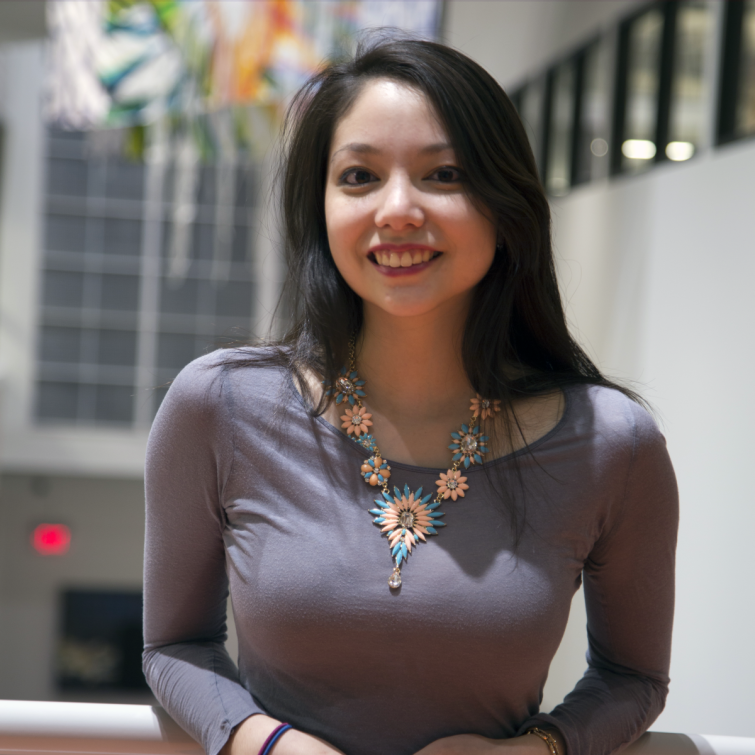Meet our innovator: Xyla Foxlin
Eureka moment: Melding cute with cutting-edge to create teddy bears that deliver digital hugs
Hometown: Boston
Majors: Double major in mechanical and aerospace engineering with a minor in studio art
Dream job? Disney imagineer
Technology has definitely brought the whole world closer—we can say “hello!” from miles away instantly via texts and Tweets and thanks to programs like FaceTime, we can even see our loved ones live in real time from across continents.
But sometimes, smiley emojis and even real smiles via webcam aren’t enough. Sometimes you just need a hug.
And that’s what inspired one tech savvy sophomore at Case Western Reserve University to invent a way to use wireless technology to send long-distance hugs—and a sense of physical connection in digital world.
Xyla Foxlin launched her startup Parihug this year to market her line of huggable plush teddy bears that use a fabric-based sensor system to detect when one bear is hugged and transmit those warm fuzzy feelings via vibrations to its pair-bear in another location. If both bears are hugged at the same time, they emit a heartbeat
Foxlin says the product could help connect people who are separated for any variety of reasons—military deployment, work travel and more, with a particular emphasis on parents and children. “There’s a definite developmental window in children where they lay the foundation for how they’ll build relationships, and it’s tied to how much they’re hugged by their primary care-givers,” Foxlin says, adding Parihug bears could help foster that physical connection when circumstances make it tough to actually be in the same space.
In January, Foxlin doled out digital hugs at the CES (formerly known as the Consumer Electronics Show) in Las Vegas—the mother of all trade shows for a certain gadget-centric segment of the population, where tech giants like Sony, Samsung, Intel and others show off their latest and greatest. She drew tons of attention from show attendees as part of Case Western Reserve’s 10-booth exhibit in the show’s Eureka Park area and even presented at an open call with the casting producers of ABC’s Shark Tank.
“It was a crazy experience,” she says. “We were in the university innovations area, so the ‘startup-iest’ of companies, and since we have such a unique product, something that stood out from all the drones and 3D printers, we got lots of traffic.”
Foxlin’s always loved to build things, so building a company seemed like a natural fit. “I’ve always had that kind of spirit my whole life,” she says of her entrepreneurial spark. “Starting in middle school, I was too young to get a work permit, so I’d rake leaves, do yard work and other random tasks. I even started a gardening company one summer in high school.”
But an entrepreneurial streak that runs back to middle school doesn’t mean Foxlin ever imagined kicking off a startup company as a college sophomore. The idea started as something of a pet project, as she wished there were better ways to reconnect with people she missed back home. She won funding from the Sears think[box]TM Student Project fund to get the project moving and refined the idea at MHacks—the University of Michigan’s mega hackathon, which she attended last fall and where she met her business partner, California high school senior Harshita Gupta.
Together, from across the country, the pair launched Parihug and began to pull in funding and prizes from top business competitions, including a grant from 1517 (a spin-off of the Thiel Fellowship), third place at the Harvard Business School Club NEO Dively Pitch Competition and first place at Girl Power Pitch Night. Foxlin also was accepted to present at South by Southwest 2016, where she won the Reader's Choice Award in Tech.Co's Startup of the Year pitch competition.
I get to live this dream of starting a company, but with a safety net. And there are so many resources that you get at a university.
She used the university’s Sears think[box] innovation center to help build her prototype as well as create materials for their exhibit at CES and worked with the university’s psychology department on field testing the product.
“That’s the coolest part of being a student entrepreneur,” Foxlin says. “Getting a taste of the real world before getting out there. I get to live this dream of starting a company, but with a safety net. And there are so many resources that you get at a university.”
She’s filed a provisional patent and plans to launch a Kickstarter campaign this summer, hoping to take Parihug to market and eventually license it to pursue her dream job as a Disney imagineer.

